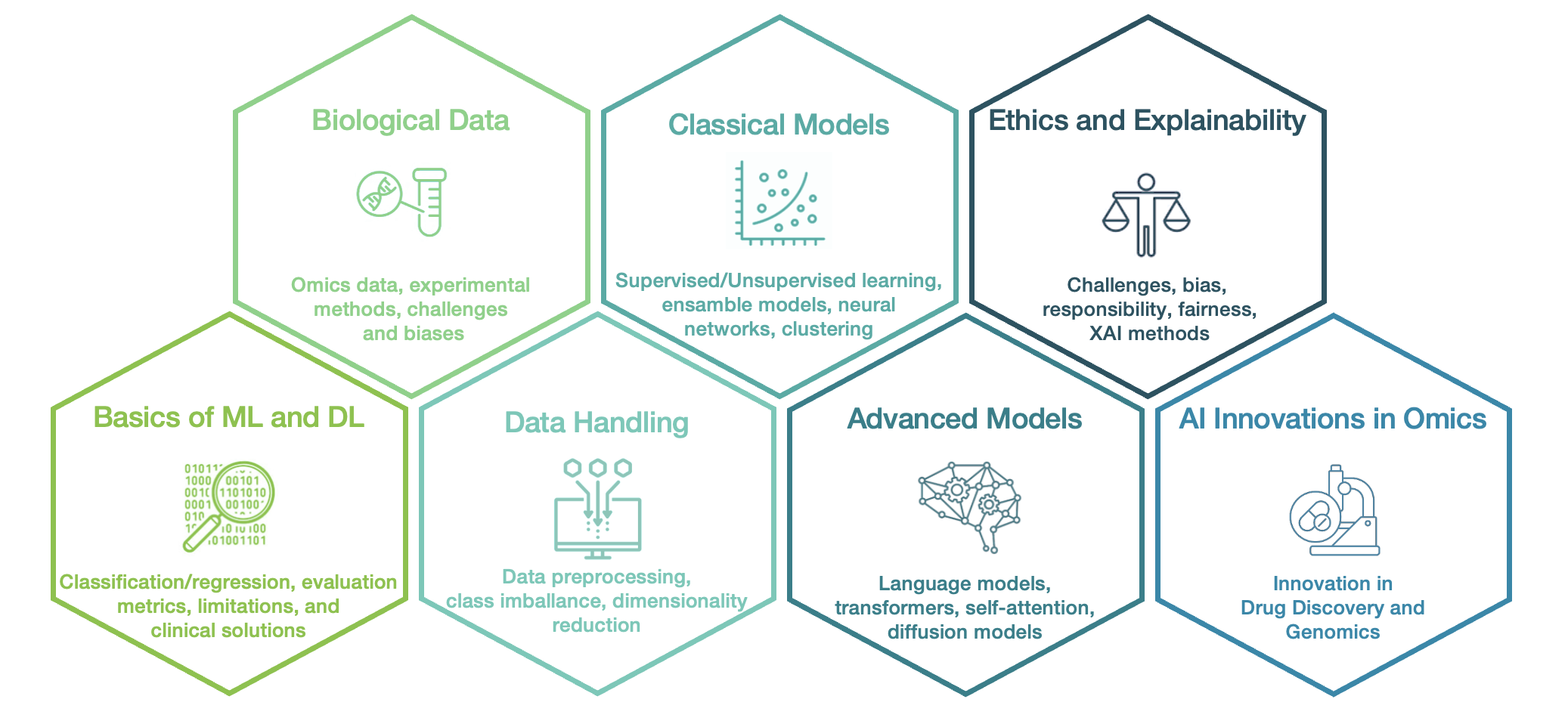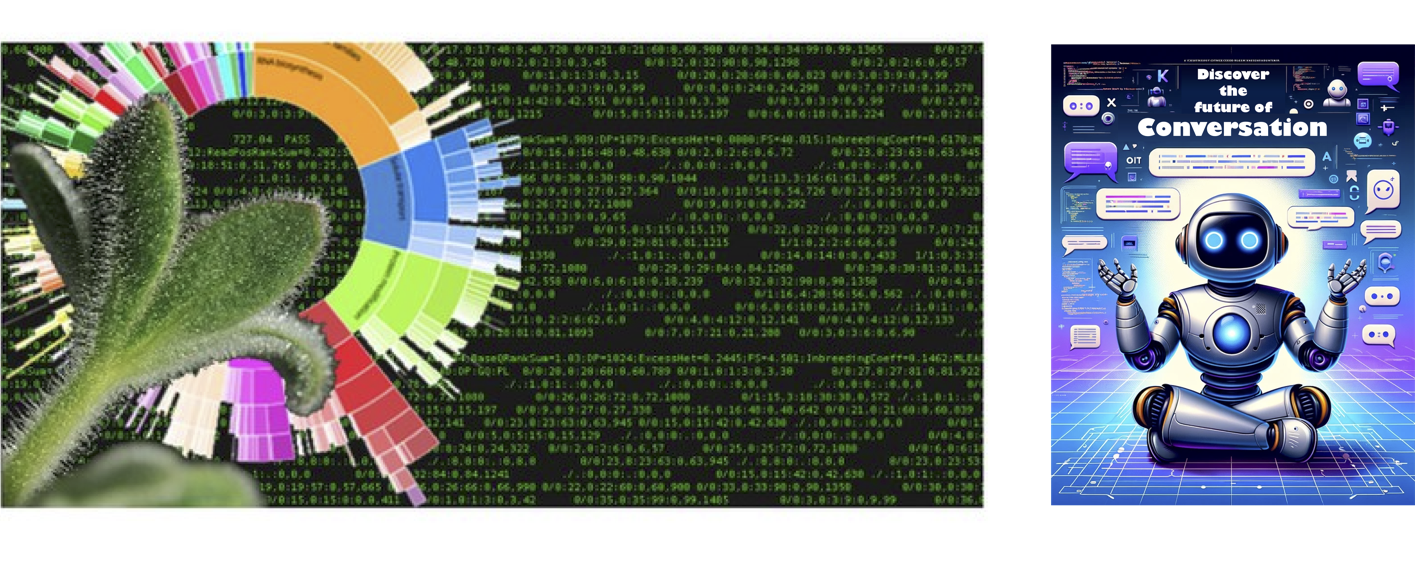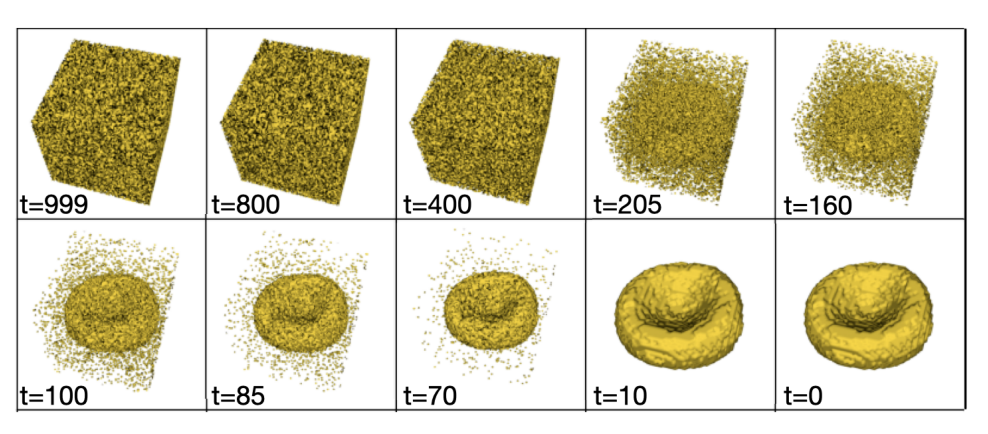- Indico style
- Indico style - inline minutes
- Indico style - numbered
- Indico style - numbered + minutes
- Indico Weeks View
Your profile timezone:

In this lecture series, the use of artificial intelligence in life sciences will be discussed guided by applications in omics and drug discovery. The lecturers will introduce you to basic concepts like regression and classification, taking into account typical challenges like data scarcity that is often an issue for biological data, and potential biases and the black-box nature of machine-learning approaches. An introduction to supervised and unsupervised learning will encompass linear and tree-based approaches, ensemble methods, and neural networks for supervised learning, as well as clustering and dimensionality reduction for unsupervised learning. You will learn more about omics data including related experimental techniques and inherent biases, as well as data preprocessing, such as data normalization and dealing with class imbalance. The techniques of generative AI and the principles of diffusion models will be illustrated for small-molecule generation and protein-ligand interaction; transformer models will be discussed specifically for DNA sequence analysis. Model-agnostic and model-specific methods for Explainable AI will be discussed, highlighting the importance of understanding model predictions to reveal biological mechanisms. Finally, artificial-intelligence applications in drug discovery and (gen)omics along with their potential importance for developing new therapies and personalized medicine will be discussed along with ethical decision-making.

Dates: Thursdays, 14:00-15:30.
Information on the dates, speakers and lecture titles can be found below.
Organization & Registration
This online lecture series is held by experts from and invited by the organizing schools and Helmholtz AI. It covers various aspects, from basics to applications. Therefore, it is recommended that you attend all lectures for a deep understanding of the subject. Registration is required to attend. Places are limited, and priority will be given to fellows (members) of the three schools in case of overbooking. Participants with an attendance rate of more than 70% may receive a certificate of attendance.




This event is organized by
International Helmholtz Research School of Biophysics and Soft Matter | BioInterfaces International Graduate School
Helmholtz Information & Data Science School for Health | Helmholtz AI